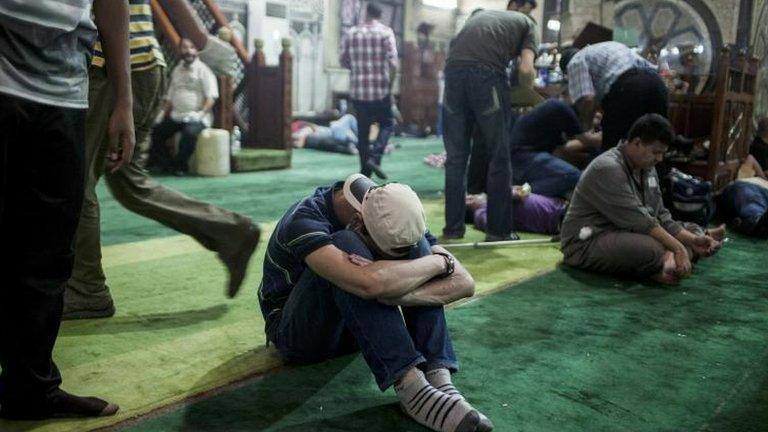Ibrahim Halawa: Egypt president will free Dublin man at end of trial
- Published
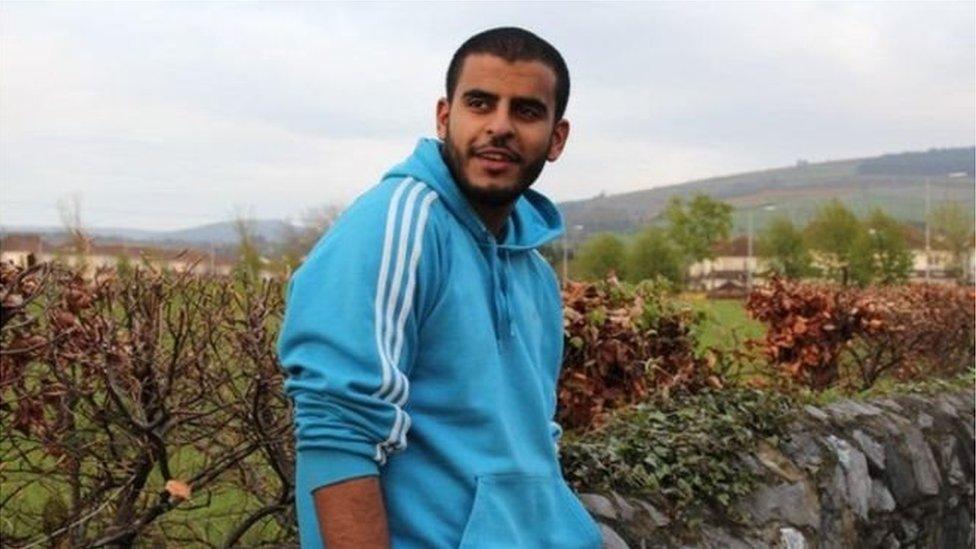
Ibrahim Halawa was 17-years-old when he was imprisoned
The Egyptian president has told a delegation of Irish politicians that he will offer a pardon to Irish man Ibrahim Halawa once his trial is over.
The Egyptian parliament has previously objected to calls from the Irish parliament to release the Dublin man.
It said the request would interfere in the affairs of the Egyptian judiciary.
Mr Halawa was 17 when he was arrested during a siege at the Al-Fath mosque in Cairo in 2013.
He has been accused, along with more than 400 others, of inciting violence, riot and sabotage.
However, Mr Halawa's family said they were on holiday at the time he was arrested and that he sought refuge in the mosque to escape the violence outside.
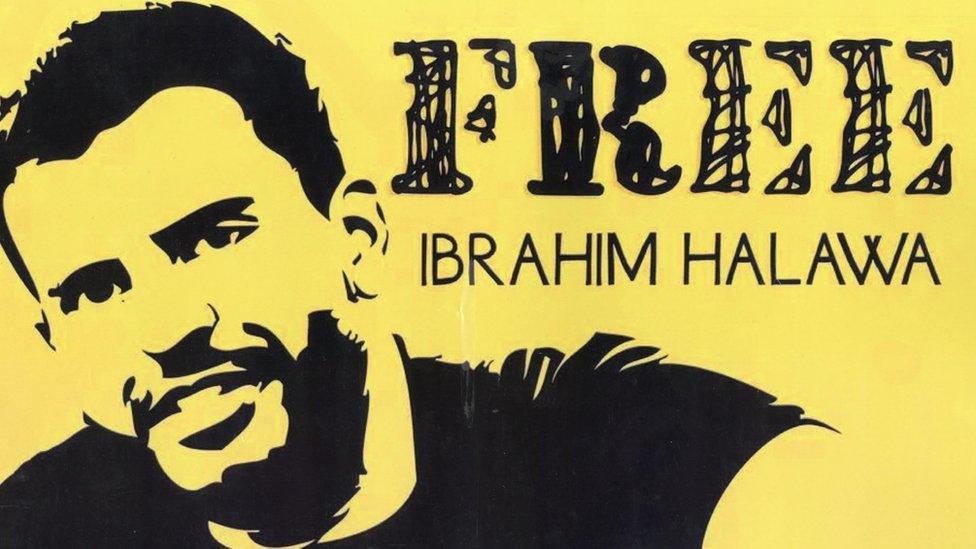
Campaigns have been ongoing for Ibrahim Halawa's release
On Wednesday, members of a cross-party delegation group of TDs met President Abdel Fattah el-Sisi to discuss his ongoing imprisonment without trial.
Speaking from Cairo, Sinn Féin TD Eoin Ó Broin, who is among the delegation, told BBC News NI that the president gave a commitment to intervene to secure Mr Halawa's release and return to the Republic of Ireland once a verdict was handed down in his trial, which is due to go ahead next week.
"Although President el-Sisi repeated his view that he couldn't interfere with the judicial process, he gave us the clearest commitment yet that regardless of the outcome of the trial, he'll use his power of pardon to get him home.
"He actually said that if he could do it today, he would."
The delegation urged Mr Sisi to use his powers under a power known as presidential decree 140 to release Mr Halawa and return him to Ireland before the trial.
"But if he was unwilling to do this, we urged him to ensure that Ibrahim would be on the youth amnesty list which we understand is currently being compiled," said Mr Ó Broin.
"What we've been saying as a delegation, in one voice, is that we don't care what the means of release are, as long as it happens.
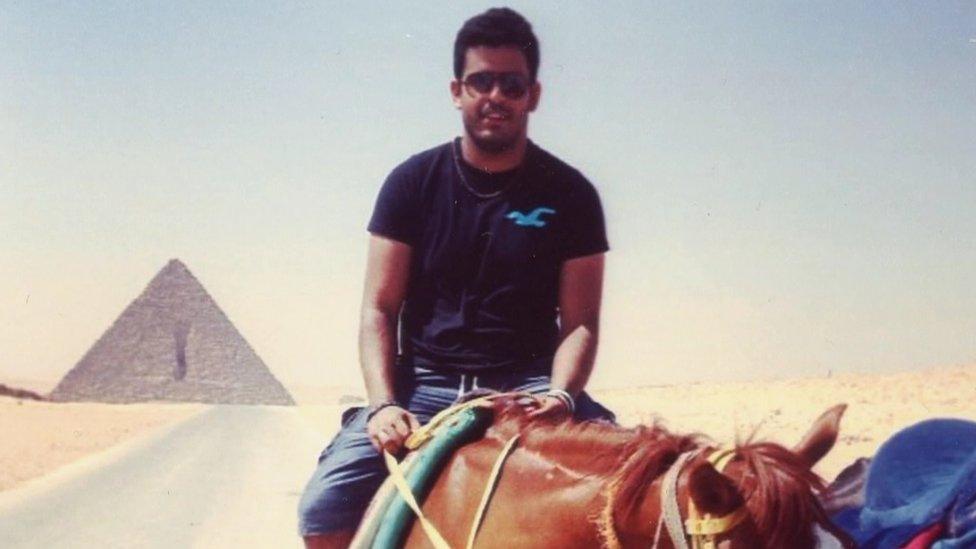
Ibrahim has been held in an Egyptian prison for three years
'Suffering'
"Our main concern now is how much more time could pass before the trial happens - itsthe trial has been adjourned time and time again since 2013."
The delegation also met Mr Halawa in prison, and Mr Ó Broin expressed concern for his health.
"He's obviously a strong person, but physically and mentally, he's suffering," he said.
"He's in a cell with 10 others sleeping side by side on the floor with no beds and a communal toilet. The conditions are hugely taxing.
"He spoke about how, when he was first imprisoned, he had just finished his leaving cert.
"Now he just wants to go home, go to college, see his family and his sister's child who he hasn't met, and start his own family one day."
- Published3 October 2016
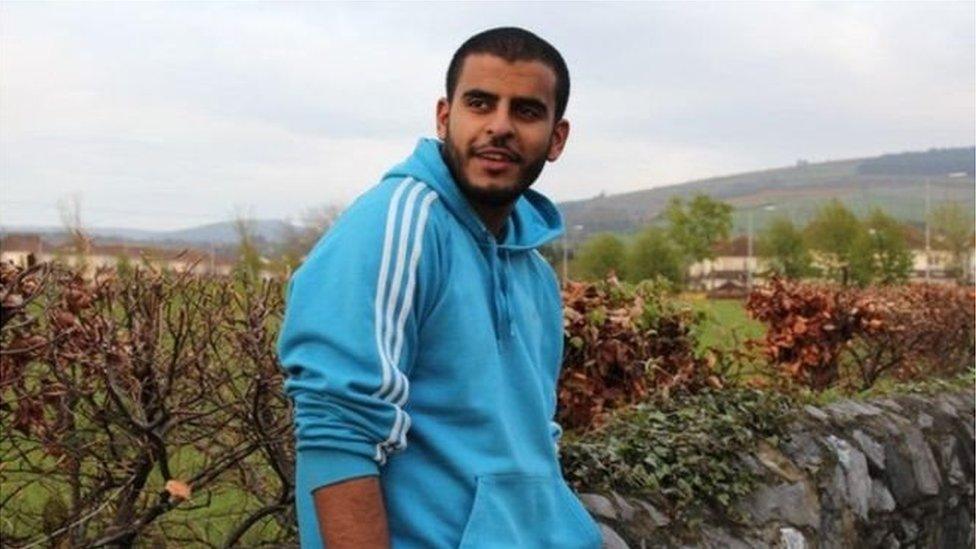
- Published7 July 2016

- Published27 April 2016

- Published7 March 2016
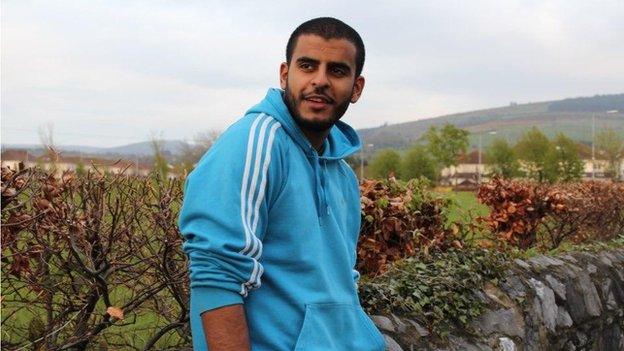
- Published9 January 2016

- Published17 December 2015

- Published1 December 2015

- Published4 October 2015

- Published2 August 2015

- Published3 June 2015

- Published30 March 2015
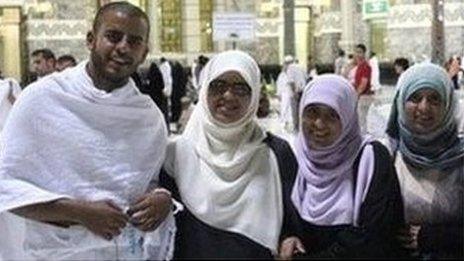
- Published8 February 2015
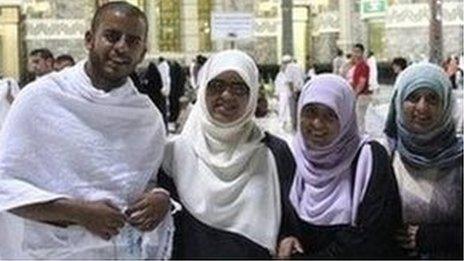
- Published5 February 2015

- Published17 August 2014
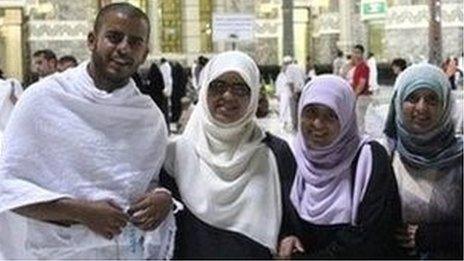
- Published17 August 2013
